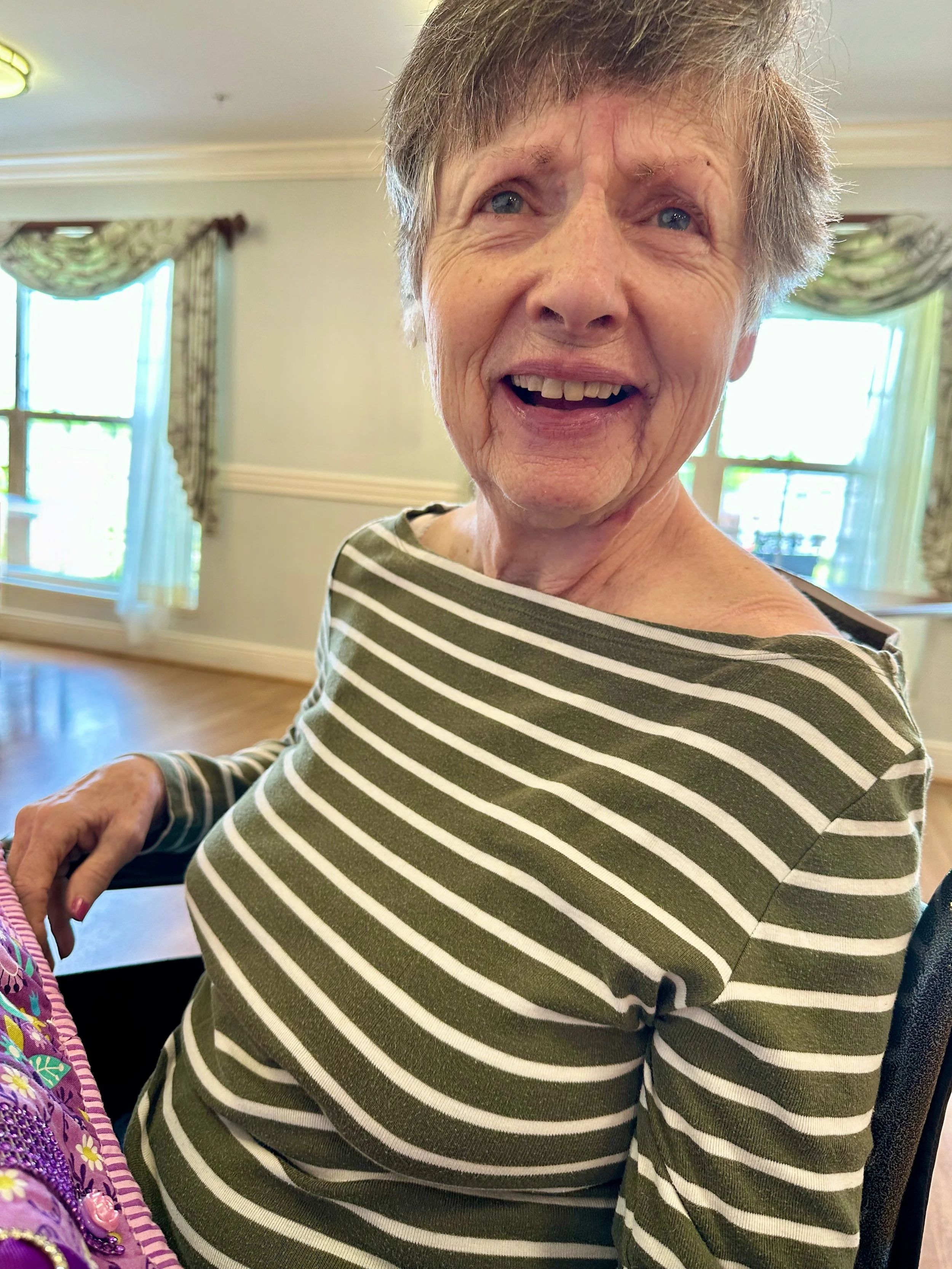Just two words, but they capture the essence of our days with Evelyn
A friend visited Evelyn while I was there last week. When she left, she said, “I don’t see any change in her since the last time I was here” (several weeks earlier). I was glad to hear that, because I feel like she’s on a plateau slightly, certainly tipping downward.
The next day I attended the funeral of a woman whose caregiver husband I’ve known and talked to several times in the last couple of years. The beautiful church building was packed with their friends and former business associates, and my friend seemed a little surprised to see me in the greeting line.
“Well, we just got down the road sooner than you have,” he said.
“We’ll get there,” I replied.
“Hopefully not too soon,” he said as I left him.
Frankly, it’s difficult to decide how I feel about that. As I’ve said before, Evelyn seems content where she is. She’s eating and sleeping well. All her vital signs are normal.
I captured a smile one day last weekend.
On the other hand, the Parkinson’s symptoms—involuntary movements, facial tics—are getting more pronounced despite increasing her medicine. Somedays she is alert and full of smiles. Other days I can hardly get her to respond to me. She stares at one page in a magazine or catalog until I pull her hand away so we can look at another.
I talk with her about the pictures. “I think you’d like this dress, don’t you?”
Sometimes she replies. “Uh-huh.”
“I don’t think you’d like this one, though, do you?”
“No.”
My private pay aides sometimes hear full sentences. A few conversations Jessica (J) and Kate (K) have reported to me:
J: You are so cute!
E: I KNOW!
J: if you don’t like the scratchy sheet, we’ll just use the bedspread.
E: (pulling it up to her chin) Oh, this is perfect!
K: Are they having any activities tonight?
E: They are!
K: Are you sure?
E: They better!
We had a suspicion of a UTI; turned out negative.
K: Does it hurt when you pee?
E: Oh, goodness, no!
Evelyn was speaking random phrases while Kate was looking for some reading materials for her.
E: True love.
K: What is true love?
E: Mark
It’s nice to believe she remembers me, even though she shows little sign of knowing me when I greet her in the afternoons. It’s good to know nothing is critically wrong with her, but it’s difficult to live in a world where any smile or coherent comment from her is a treasure.
Sometimes it’s tiring, sometimes it’s boring, to spend most of our effort guessing what’s best for her. All we can do is try strategies experience has taught us she will respond to.
But that last comment of hers, above, reminds us of why we serve her faithfully, why I keep coming back to talk with her, play music for her, show family pictures to her, and try activities with her. Why the care partners at Artis and especially the two angels we’re paying to visit with her every evening tend to her physical needs, ride her through the hallways and around the pretty grounds of Artis, talk with her, play music and Scripture for her, paint her nails and rub lotion onto her feet.
True love.

